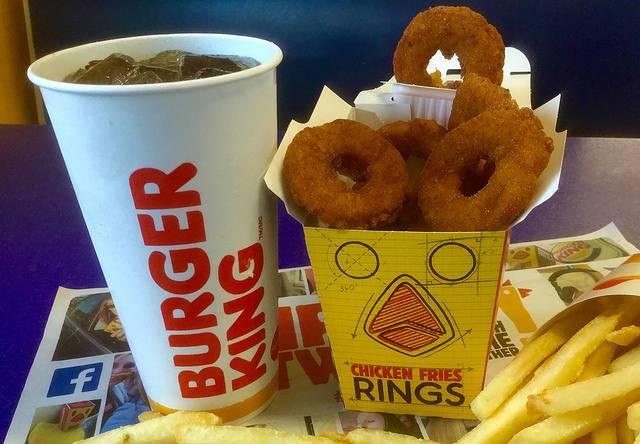
There are things that aren't easy to figure out when we're chomping down on that fast-food hamburger or chicken sandwich at lunch time. Like, where the meat comes from.
For example, a friend of mine is a huge fan of A&W Canada burgers (yes, there's a difference, apparently, from those sold in the U.S.). He likes the banner that is displayed outside the door that boasts the fact that no hormones are used in their beef. And best of all, he says, he likes the taste.
Of course what isn't brandished across the building is the fact that A&W Canada, which is owned by Unilever, is in hot water with Canadian beef producers. According to a number of ranch owners, in initiating its "Better Beef" initiative some years ago, it moved much of its beef procurement to other parts of the world. Its website notes a number of small U.S. and Canada sources for its beef, but savvy burger eaters claim they've done the math: According to them, the amount they are able to procure doesn't add up to A&W's annual sales.
Be that as it may, fast-food consumers liked the think-out-of-the-box marketing concept, enough so that a year later, the brand announced it would also be transitioning its chicken and eggs to antibiotic-free sources.
And that got attention. According to one source, A&W was able to boost its same-store sales growth 8 percent just two years after launching its Better Beef campaign and one year after changing out its chicken supply chain.
That kind of financial win hasn't been lost on the parent corporation of U.S.-based Burger King, which last week announced it would be changing out its conventionally grown chicken for hormone-free sources. Restaurant Brands International has formed an agreement with shareholder advocacy group As You Sow, which submitted a resolution in 2016 calling for reduced use of antibiotics use in its supply chain.
As You Sow withdrew the resolution and RBI has agreed to set timelines as it winds down its use of conventionally raised chicken and fully implement the change by 2018.
But Burger King knows it has more work ahead of itself to really win over consumers in an ever-competitive market. While its website claims the company is "the world's third-largest fast-food company," that statistic doesn't really paint a full picture of the competition Burger King is up against in its daily sales. According to Statistica, the company ranked ninth in terms of the most valuable fast food brands globally, trailing behind niche brands like Starbucks and sandwich retailer Subway. Some, like Panera (which trails behind Burger King) and Chipotle Mexican Grill, Burger King points out, have already begun transitioning away from meat with antibiotics.
But the burger brand also has increasingly come under the scrutiny of environmental organizations, which say that Burger King's beef is connected with vast amounts of deforestation in Brazil and other South American nations. One source blames Burger King and other fast-food beef producers for the deforestation of more than 271 million acres for beef and soy (a key source of food for beef cattle) production.
Burger King knows this is a sore spot with many consumers, so last week it upped the anti. RBI has announced in its sustainability report that it will cease deforestation practices by 2030. It's also promised to protect the land rights of local farmers in South American countries.
Scientists and environmentalists say the changes won't come fast enough for an area that has faced mass deforestation and land and labor disputes for decades. Union of Concerned Scientists weighed in immediately, calling RBI's announcement "embarassingly weak" and called on the corporation to set goals a decade sooner, in line with other companies' commitments.
"[More] than a dozen companies including McDonald’s, Dunkin’ Donuts, Unilever, Nestle, Carrefour and Walmart have stated their support for an immediate end to deforestation for soy, the major feed for livestock," the nonprofit environmental organization Mighty Earth reported. The environmental organization has zeroed in on Burger King recently for what Mighty Earth calls its "meat secret:" an unwillingness to share the origins of its products.
Unfortunately for Burger King, that accusation has ramped up an even greater appetite by advocacy organizations to get to the details that RBI's sustainability report doesn't disclose -- such as the origins and impact of its palm oil supply chain, another key issue when it comes to Burger King's supply chain.
If there is any bright side to the company's announced changes, it's exactly that: It's decided to make changes. Whether it will garner the increased sales by transitioning its chicken to antibiotic-free sources while taking more than a decade longer than most to stop its role in deforestation practices has yet to be seen. For many environmentalists and animal rights advocates the two issues are one and the same when it comes to protecting the environment and Mother Nature.
Flickr image: Mike Mozart
Jan Lee is a former news editor and award-winning editorial writer whose non-fiction and fiction have been published in the U.S., Canada, Mexico, the U.K. and Australia. Her articles and posts can be found on TriplePundit, JustMeans, and her blog, The Multicultural Jew, as well as other publications. She currently splits her residence between the city of Vancouver, British Columbia and the rural farmlands of Idaho.














